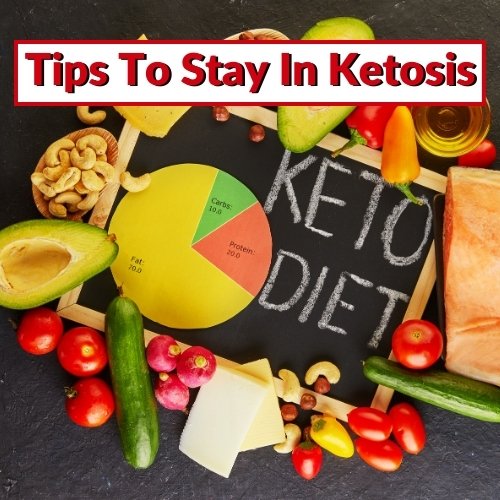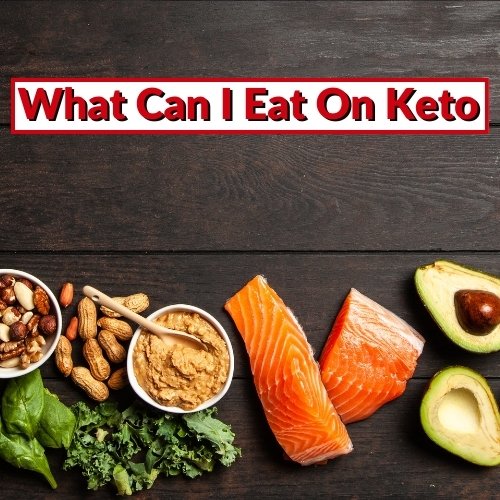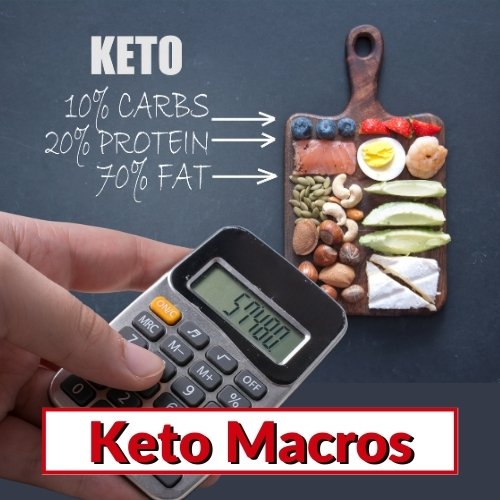9 Best Tips To Stay In Ketosis
- 9 Best Tips To Stay In Ketosis
- Overview Of Ketosis
- What Is A Keto Diet?
- Macronutrients And Calories To Consume
- Meal Planning Strategies
- Exercise While In Ketosis
- Monitor Your Progress
- Ways To Increase Ketone Levels
- Common Pitfalls To Avoid
- Long-Term Benefits Of Staying In Ketosis
- Conclusion
- You Might Also Like
Are you looking to stay in ketosis? Staying in ketosis is an important part of a successful keto diet, and there are some tips you can use to help keep your body in a state of ketosis. This article will discuss the 9 best tips to stay in ketosis. Discover the best tips to maintain ketosis and achieve success like Katy.
Staying in ketosis is a key component of achieving success with any keto diet. When your body enters this state, it begins to burn fat instead of carbohydrates, giving you more energy and helping you reach your weight loss goals. However, it can be difficult to remain in this state without the right guidance and advice.
This article will provide readers with nine of the best strategies for staying in ketosis. We’ll also discuss how each strategy helps with reaching goals such as increased energy levels and weight loss success. By following these tips and making them part of your lifestyle, you’ll be well on your way to reaching your health and fitness goals! So, without further ado here are the 9 tips.
Read on to find out more.
9 Best Tips To Stay In Ketosis
- Eat low-carb foods like fish, eggs, nuts, and non-starchy veggies; avoid sugary/grain-based foods.
- Consume 70-80% of your daily calories from fat; 20-30% from protein; and 5-10% from carbs.
- Plan ahead and meal prep to ensure you have healthy meals on hand at all times.
- Incorporate aerobic exercise like running, jogging, cycling, or swimming to burn fat and encourage the body to use more ketones for fuel.
- Monitor your carb intake closely to avoid consuming too many carbs and being pushed out of ketosis.
- Incorporate strength training to build muscle mass and increase metabolism.
- Drink plenty of water and stay hydrated throughout the day.
- Find ways to increase your ketone levels, such as limiting carb intake, taking exogenous ketone supplements, using MCT oil, or engaging in regular physical activity.
- Monitor your progress by tracking your carb intake and checking for changes in weight or body composition.
Overview Of Ketosis
- Metabolic state where fat is used for fuel instead of carbs
- Occurs when insufficient blood sugar available; ketone bodies produced as alternative energy source
- Eat low-carb foods like fish, eggs, nuts and non-starchy veggies; avoid sugary/grain-based foods
- Benefits include weight loss, improved mental clarity, increased physical endurance, reduced inflammation
- Maintaining ketosis helps with quick weight loss without sacrificing healthful food choices
What Is Ketosis
Ketosis is a metabolic state in which the body uses fat for fuel instead of carbohydrates. It occurs when there is insufficient blood sugar (glucose) available to use as energy. This lack of glucose forces the body to break down stored fats instead, producing what are called ketone bodies. These ketone bodies can then be used as an alternative energy source.
What Do You Eat
When following a ketogenic diet, a person will typically eat very low-carbohydrate foods like fish, eggs, nuts and non-starchy vegetables while avoiding sugary foods and grains. By drastically reducing carbohydrate intake and replacing it with healthy fats and protein, the body enters into a metabolic state known as ketosis.
What Are The Benefits Of Ketosis
The benefits of a ketogenic diet may include weight loss, improved mental clarity, increased physical endurance and reduced inflammation in the body. For people trying to maintain their weight or lose weight quickly without feeling deprived or sacrificing healthful food choices, staying in ketosis can be beneficial.
What Is A Keto Diet?
Keto diet is a low-carb, high-fat diet that helps to keep the body in a state of ketosis, where it burns fat for energy instead of carbohydrates. This type of diet has become very popular among people who are looking to lose weight and achieve optimal health. A keto diet typically involves eating mostly fats, some proteins and minimal amounts of carbohydrates. It also involves limiting certain food groups such as sugars, grains and legumes. In order to stay in ketosis, people need to monitor their carb intake closely and stick with healthy fats like olive oil, coconut oil and avocado oil.
It’s important to note that although a ketogenic diet can be an effective way to lose weight, it’s not for everyone. People with certain medical conditions should consult their doctor before starting any form of restrictive eating plan. Once approved by a doctor, the best advice is to start slowly and gradually reduce carbohydrate intake over time while increasing fat intake at the same time. This will help the body adapt more easily to burning fat for energy instead of carbs.
When following a ketogenic diet it is important to choose quality foods such as organic vegetables, grass-fed meats and wild-caught fish whenever possible. Eating nutrient dense foods helps ensure that you get adequate vitamins and minerals while still sticking with your low-carb goals. Additionally, make sure to drink plenty of water throughout the day as well as get regular exercise to help support the process of reaching a sustainable level of ketosis.
Macronutrients And Calories To Consume
When trying to stay in ketosis, it is important to consider macronutrients (Macros) and the number of calories consumed each day.
What Are Macros?
Macronutrients are proteins, carbohydrates, and fats. When eating a ketogenic diet, the primary source of energy should be fat. It is recommended to consume 70-80% of your daily calories from fat. The remaining 20-30% should come from protein sources such as nuts, seeds, fish and poultry. Carbohydrates should only make up about 5-10% of your daily calorie intake. This will help ensure that you are able to maintain a state of ketosis.
How Many Calories Can I Have?
It is also important to pay attention to how many calories you are consuming overall each day. Eating too many calories can push your body out of a state of ketosis so it’s important to track this closely. Consuming fewer than 1,500 calories per day may not provide enough energy for the body’s needs and can lead to fatigue or other health issues. On the other hand, consuming more than 2,000 calories per day may take you out of a state of ketosis since there will be more energy sources available than just fats. Finding the right balance between these two extremes is key for staying in ketosis while achieving optimal health outcomes.
The number of calories and macronutrients you need depends on factors such as age, gender, activity level, and current health status so it is important to consult with a healthcare professional if needed. Additionally, tracking your food intake can help you get an accurate idea of what types and amounts of foods you should be eating each day in order to reach your goals.
Meal Planning Strategies
To stay in ketosis, meal planning is a key component. To get the most out of your ketogenic diet and to ensure you are getting the right nutrients and calories, a solid meal plan is essential. Here are some tips to help you create a successful meal plan:
First, make sure that your daily meals include adequate amounts of fats, proteins and carbohydrates. Fat should be the primary macronutrient in your diet, making up about 70% of your total intake. Protein should take up 20-30% of your macro count, with the remaining 10-20% coming from carbs. You should also aim for consuming around 25-30g of net carbs per day.
Second, it’s important to have a variety in what you eat. Rotating food items throughout the week will keep things interesting while also ensuring that you’re getting all of the necessary micronutrients and vitamins. Additionally, this helps prevent boredom with eating the same foods every day which can lead to overindulging or cravings for unhealthy food items.
Finally, be sure to plan ahead when it comes to preparing meals and snacks. Meal prepping is an excellent way to save time during busy weeks while also guaranteeing that you have healthy meals on hand at all times. This will make it easier to stick to your goals and avoid temptation throughout the week.
Exercise While In Ketosis
Exercising while in ketosis can be beneficial to a person’s overall health. It can help them lose weight, increase their energy level, and improve their mental clarity. It’s important to note, however, that the type of exercise chosen should be tailored to the individual, as different exercises have different benefits in terms of staying in ketosis.
Aerobic exercise is particularly effective for staying in ketosis. This type of exercise involves activities such as running, jogging, cycling, or swimming. It increases the heart rate and breathing rate for an extended period of time which helps burn fat and calories quickly. In addition to burning fat and calories, aerobic exercise also encourages the body to use more ketones for fuel instead of glucose from carbohydrates.
Strength training is also beneficial when trying to stay in ketosis. This type of exercise helps build muscle mass which increases metabolism and helps burn more calories even when at rest. Strength training also strengthens bones and joints and can help prevent injuries while exercising.
Engaging in regular physical activity while following a ketogenic diet will help ensure that you remain in a state of ketosis while reaping all the benefits it has to offer. Exercise combined with a healthy diet will help you reach your goals and feel great!
Monitor Your Progress
Now that you’ve learned about the importance of exercise while in ketosis, it’s time to learn about monitoring your progress. Keeping track of your progress is key to maintaining and achieving success with a ketogenic diet. Tracking your carbohydrate intake and checking for changes in your weight or body composition are two important steps for monitoring your progress.
The most important factor to consider when tracking your progress is keeping an eye on the amount of carbohydrates you’re consuming each day. It’s recommended to keep carb intake low, around 20-50 grams per day to remain in ketosis. You can use a food journal or a calorie tracking app to help you keep track of how many carbs you’re eating throughout the day. Additionally, weighing yourself regularly will help you monitor changes in weight or body composition as well.
By monitoring both carbohydrate intake and body composition, you’ll be able to identify if your diet is working for you or if adjustments need to be made. This can help ensure that you stay in ketosis and reach your fitness goals with ease. In addition, regular check-ins with a doctor or nutritionist may also be beneficial since they can provide additional support when needed while helping you make sure that you’re staying on track with your health goals.
Ways To Increase Ketone Levels
Ketone levels are important for weight loss, energy, and overall health. Increasing your levels of ketones can be done in a variety of ways, such as limiting carb intake, incorporating intermittent fasting, taking exogenous ketone supplements, using MCT oil, and engaging in regular physical activity.
One way to increase your ketone levels is to limit your carb intake. When you reduce the amount of carbs you consume, your body is forced to use stored fat as its primary source of energy. This process, known as ketosis, results in the production of ketones, which can be measured in the blood or urine.
Additionally, intermittent fasting can help boost ketone levels by allowing your body to burn more fat over a longer period of time.
Another way to increase ketone levels is through supplementation. There are several different exogenous ketone supplements available that can provide a quick boost of energy and help promote weight loss.
Additionally, some people may find it beneficial to incorporate MCT oil into their diet as it has been found to increase ketone production and aid in weight loss.
Finally, exercise can also be an effective way to increase your ketone levels. High-intensity interval training (HIIT) is particularly effective at triggering ketosis due to its short duration and high intensity nature; however, any form of movement such as walking or jogging can help keep your body in a state of ketosis. Additionally, engaging in regular physical activity helps improve overall health and wellbeing.
Common Pitfalls To Avoid
Staying in ketosis can be tricky but it doesn’t have to be. Avoiding some common pitfalls such as not paying attention to your carb intake and skimping on healthy fats can help you stay on track. Additionally, make sure you are staying hydrated by drinking herbal teas or plain water and tracking your food intake for an accurate idea of what types and amounts of foods you should be eating each day. By following these tips, you’ll find success on your keto journey!
Keep An Eye On Your Carbs
First and foremost, don’t forget to monitor your carb intake. Even if you think you’re eating low-carb meals, it’s important to pay attention to how much carbohydrate is in the food you’re consuming. This includes snacks and processed foods as well. It’s also important to avoid snacking between meals, as these can easily add up and lead to excess carbs.
Don’t Skimp On The Fat
Another common problem is not getting enough fat in your diet. When switching over to a keto diet, many people forget about adding saturated fats into their meals for energy production. Make sure you include healthy sources of fat like olive oil, nuts and avocados. Additionally, make sure you get enough fiber from leafy greens and other vegetables as this will help ward off cravings for unhealthy foods.
Stay Hydrated
Lastly, hydration is key when trying to stay in ketosis. Drinking plenty of water throughout the day will help flush out toxins from the body and keep your cells functioning properly. Avoid sugary drinks like soda or fruit juices as these could spike blood sugar levels and kick you out of ketosis. Sticking with herbal teas or just plain water can make all the difference when it comes to staying in ketosis long term. Keep these tips in mind and you’ll be well on your way towards reaching your goals!
Long-Term Benefits Of Staying In Ketosis
Staying in ketosis can provide lasting health benefits. The first advantage is weight loss. People who stay in ketosis tend to lose more fat than those who don’t. They also experience improved energy levels. Staying in ketosis helps reduce cravings and hunger, which makes it easier to maintain a healthy weight.
Another benefit of staying in ketosis is improved mental clarity and focus. Those on a ketogenic diet tend to have better cognitive function, increased concentration, and sharper memory than those who don’t consume low-carb diets. Additionally, they may also experience improved moods and better sleep quality.
Finally, staying in ketosis has been linked to lower risks of chronic conditions such as heart disease, stroke, and type 2 diabetes. It can also help reduce inflammation throughout the body, leading to better overall health for the long term.
By maintaining a state of ketosis over time, individuals are able to reap the many benefits it offers – from weight loss to cognitive improvement – making it an effective and healthy lifestyle choice for those looking to improve their overall well-being.
Conclusion
The ketogenic diet can be a great way to lose weight and stay healthy. By following these 9 best tips to stay in ketosis, you can ensure that you’re doing everything possible to maximize the benefits of your diet. Eating a high-fat, low-carbohydrate diet, supplementing with exogenous ketones, and monitoring your progress are all important steps that will help you stay in ketosis over the long haul.
It’s important to remember that staying in ketosis is not a one-size-fits-all solution for everyone. Some people may experience side effects or find it difficult to follow the strict guidelines of this lifestyle. If you find yourself struggling to stay in ketosis, consult with a healthcare professional who can provide guidance and advice on how best to proceed.
Staying in ketosis requires dedication and commitment but can be an incredibly powerful tool when used correctly. With the right approach and these 9 best tips, I’m sure you’ll have success staying in ketosis long term!





